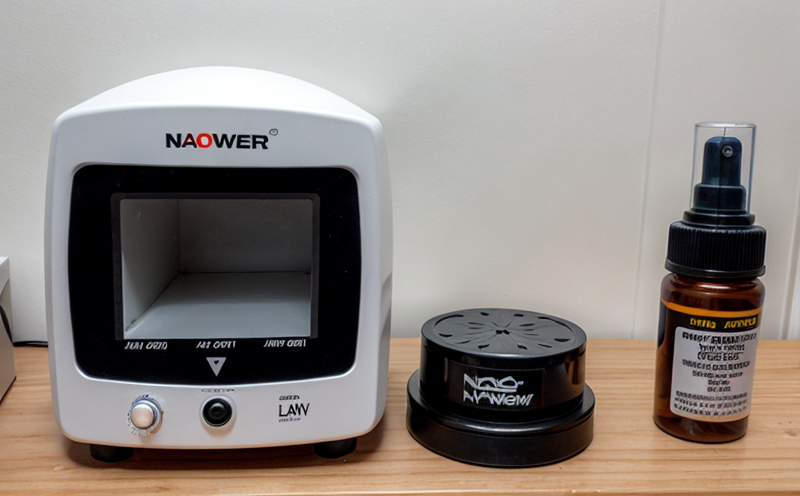ASTM D720 Dust Explosivity Testing of Fine Particles
The ASTM D720 Dust Explosivity Test is a critical assessment designed to evaluate the potential for dust explosions in industrial environments. This test measures the minimum oxygen concentration and pressure required for the ignition of fine particles, providing essential data for risk management and compliance with safety regulations.
Understanding the explosibility of fine particles is vital for industries that handle or produce materials like flour, sugar, wood, and metal powders. The test helps identify hazards associated with dust accumulation, ensuring safer operations by informing necessary preventative measures such as proper ventilation systems, dust collection strategies, and fire suppression plans.
The ASTM D720 method uses a pressurized vessel to introduce oxygen into the system until ignition occurs. The minimum oxygen concentration at which this happens is recorded. This data provides valuable insights into the potential for explosion based on particle size, shape, and other physical properties.
Proper sampling and preparation are crucial before performing ASTM D720 testing. Materials must be finely ground to ensure consistency across samples. The laboratory uses advanced techniques like laser diffraction or Sieve Analysis to achieve this precision. Once prepared, the samples undergo rigorous testing under controlled conditions to ensure accurate results.
The equipment used in ASTM D720 testing includes a pressurized vessel capable of maintaining precise oxygen levels and temperature control. Sensors monitor these parameters while an ignition source triggers the reaction inside the vessel. Data collected during this process is analyzed using statistical methods to determine key metrics related to dust explosivity.
Results from ASTM D720 tests are typically reported as both a minimum oxygen concentration (percent) and pressure value (kPa). These values indicate how sensitive the material is to ignition, with lower numbers suggesting higher risk. Understanding these parameters allows companies to implement appropriate safety protocols tailored specifically for their operations.
Regulatory compliance plays a significant role in choosing this test due to its importance across various industries handling fine particles. For example, facilities operating within the food processing or pharmaceutical sectors need to adhere strictly to standards like ASTM D720 when assessing risks associated with dust accumulation and subsequent explosions.
Incorporating ASTM D720 testing into routine quality assurance practices can significantly enhance workplace safety by identifying potential hazards early on. By understanding the exact conditions under which an explosion might occur, organizations can take proactive steps to mitigate those risks effectively.
The methodology employed in ASTM D720 ensures consistent and reliable results across different samples and environments. This consistency makes it a trusted tool for evaluating dust explosivity accurately. However, it is important to note that while this test provides valuable information about the potential for explosions within specific parameters, other factors such as ambient conditions and storage practices also influence overall safety.
Overall, ASTM D720 Dust Explosivity Testing of Fine Particles serves as an indispensable tool for ensuring safe operations in industries dealing with fine particles. Its ability to provide precise measurements helps organizations make informed decisions regarding process optimization and risk management strategies.
Why It Matters
The significance of ASTM D720 Dust Explosivity Testing cannot be overstated, especially given the increasing number of incidents involving dust explosions across various industries. These events can result in severe injuries or fatalities while causing significant damage to property and equipment.
- Prevention of Catastrophic Incidents: By identifying the conditions under which fine particles become explosive, ASTM D720 helps prevent catastrophic accidents that could otherwise lead to loss of life and extensive financial losses.
- Enhanced Workplace Safety: Understanding the explosivity characteristics allows employers to implement effective safety measures such as proper ventilation systems, dust collection methods, and fire suppression equipment. These precautions significantly reduce the likelihood of an explosion occurring during routine operations.
- Compliance with Regulations: Many industries are required by law to adhere to specific guidelines regarding workplace safety. ASTM D720 provides a standardized approach that ensures compliance with relevant regulations like OSHA and NFPA, thereby protecting both employees and the public from potential hazards.
In summary, conducting ASTM D720 Dust Explosivity Testing is crucial for maintaining safe working environments while ensuring regulatory adherence. It offers valuable insights into material behavior under controlled conditions, enabling informed decision-making that prioritizes worker safety above all else.
Why Choose This Test
- Accurate Measurement: ASTM D720 ensures precise determination of dust explosivity through standardized procedures and equipment. This accuracy is crucial for reliable risk assessments and informed decision-making processes.
- Regulatory Compliance: Many industries must comply with strict regulations governing workplace safety. Performing ASTM D720 testing demonstrates commitment to these requirements, enhancing credibility among stakeholders.
- Predictive Insights: The test provides predictive insights into how fine particles may behave in real-world scenarios, allowing organizations to anticipate potential hazards and take preventive actions accordingly.
- Consistency Across Samples: Using ASTM D720 ensures consistent results across different batches or types of materials being tested. This consistency promotes confidence in the testing process and facilitates better planning for safety measures.
Selecting ASTM D720 Dust Explosivity Testing offers numerous advantages beyond mere compliance; it also contributes to creating safer workplaces by providing actionable intelligence about potential risks associated with fine particles.
Quality and Reliability Assurance
- Consistent Methodology: ASTM D720 uses a standardized approach that guarantees consistent results, regardless of the laboratory or testing facility performing it. This consistency ensures reliable data for making informed decisions.
- Accurate Results: The precision achieved through ASTM D720 testing allows organizations to trust the accuracy of their findings when assessing dust explosivity. Reliable data is essential for effective risk management strategies.
- Comprehensive Reporting: Extensive reporting capabilities associated with ASTM D720 provide detailed information about each test conducted, including raw data and analysis. This comprehensive documentation supports thorough record-keeping practices and facilitates easy access to critical information when needed.
The combination of consistent methodology, accurate results, and comprehensive reporting makes ASTM D720 an excellent choice for quality assurance purposes. It ensures that organizations can maintain high standards of safety while complying with relevant regulations.





